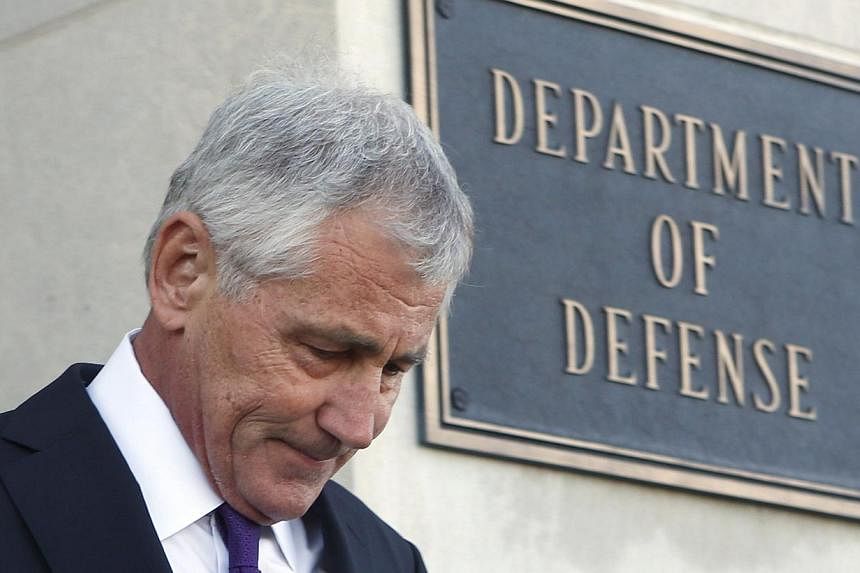US Secretary of Defence Chuck Hagel announced his resignation on Sunday night (US time) after two years at the helm. The shock announcement came without an explanation for the sudden departure. Here are some questions you might have over his exit:
Did he resign or was he pushed out?
The White House and Mr Hagel himself have painted the resignation as a mutual decision, but many signs point to Mr Hagel, 68, being ousted. As recently as last month, when questions were being asked about why Mr Hagel's trip to Asia was cancelled, those close to the secretary were still saying that he intended to serve until the end of President Barack Obama's tenure in 2016.
At the press conference announcing his departure, everyone involved steered clear of explaining the reasons for the resignation. The closest Mr Obama came to even approaching the issue was when he said: "Last month, Chuck came to me to discuss the final quarter of my presidency and determined that having guided the department through this transition, it was an appropriate time for him to complete his service... If there's one thing I know about Chuck, it's that he does not make this or any decision lightly. This decision does not come easily to him, but I consider myself extraordinarily lucky to have had him by my side for two years."
Nearly all Washington pundits are calling this a sacking.
If he was fired, what was the reason?
Several theories abound as to why Mr Hagel was asked to leave. One prominent one is that the White House did not think he was up to the task of handling the ongoing mission in Iraq and Syria. Quoting unnamed administration officials, The New York Times said that the White House had decided that the fight against the Islamic State in Iraq and Syria (ISIS) militant group would require a different set of skills. Mr Hagel was appointed defence secretary at a time when the US was drawing down troops from Iraq and Afghanistan, where as now it seems to be inching back towards a war footing. Some also suggest that the former senator was never a good fit for the Pentagon and this was deemed the right time to push him out. He is the third defence secretary of the Obama era, after Mr Leon Panetta and Mr Robert Gates.
Another theory states that Mr Hagel was pushed out due to recent disagreements with the President over the strategy in Syria. While Mr Hagel has largely agreed with the President's actions, there had been rumblings of late that he wanted US forces to have a more active role in the fight against ISIS. Mr Hagel recently wrote a confidential memo to National Security Adviser Susan Rice voicing his concerns about the strategy in Syria. Mr Obama has maintained that there will be no US boots on the ground.
Then there is the suggestion, especially from conservatives, that Mr Hagel was simply the scapegoat, a distraction for all the failings of Mr Obama in recent months, including the dire election results and missteps in its policy in the Middle East and Russia.
Who could replace him?
There is already heavy speculation that a former undersecretary of defence for policy Michele Flournoy. She is known to be a hawk, and has bipartisan support in Congress, which would be needed if she is to get past the confirmation hearings in a Republican-controlled Senate. If she is chosen, she will be the first-ever woman to take up the post.
Former deputy secretary of defence Ashton Carter is another name that has been bandied about. Both Ms Flournoy and Mr Carter have been considered before as potential candidates for the top Pentagon job, so they will be familiar with the confirmation process they will have to go through.
Another possibility is that the administration would simply promote current deputy defence secretary Robert Work. He has an established record, is intimately familiar with the current workings of the Pentagon and will be able to hit the ground running.
Mr Hagel said he will stay on until a successor is appointed, and the White House has indicated it would do so soon.


